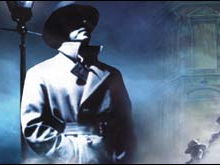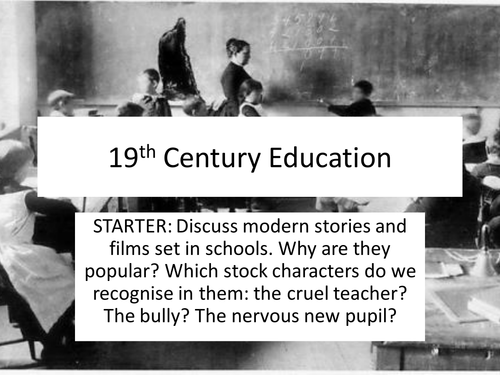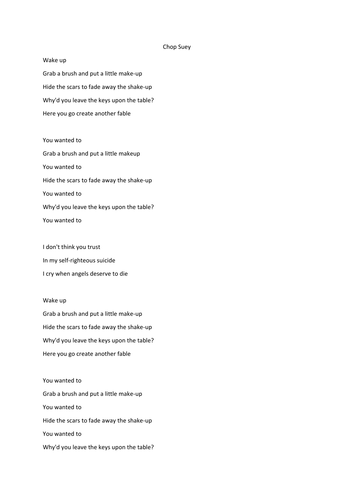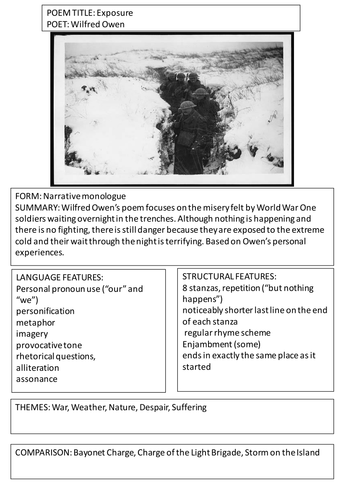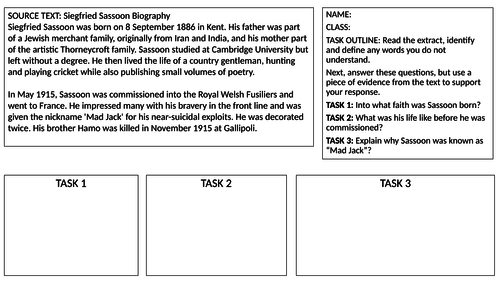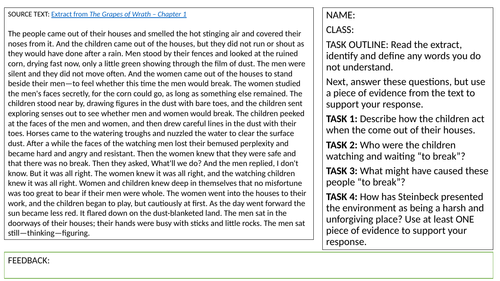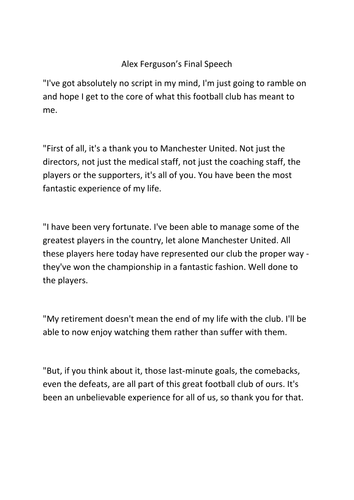
228Uploads
563k+Views
1397k+Downloads
English language arts
Bundle

English Language Paper 1 and Paper 2 Bundle (version 2)
These two resources cover both papers in detail, and provide you with a spreadsheet to collate your data.

KS3: An Inspector Calls (introduction to the GCSE Literature paper)
A bare bones SoW that focuses on introducing the Literature aspect of study at KS3, but assesses the students on a piece of creative writing. The lessons assume you have a copy of the text for students to follow. Look at this as a starting point.
Designed with a bottom set in mind.

KS3: Introduction to 19th Century Literature
A bank of lessons and extracts that introduce Key Stage 3 to a variety of different 19th Century Literature texts. Designed with a top set year 8 class in mind. Draws heavily from the AQA material - look at this as either a time-saver or a starting point.
ADDITION: These lessons are intentionally “light” in terms of their content - the main aim of this unit was to get the students to read the extracts and to ask questions about them. As a result, the lessons I’ve built contain gaps that allow me to react to the needs of the kids. If your intention is to purchase these lessons, please recognise that you will need to fill these gaps yourself. The lessons were only ever intended as a starting point.

AQA A-Level English Language and Literature: Othello - Lesson 1
A reintroduction lesson that should be taught with the understanding that the students have read the text beforehand. Designed as an entry point into year 13; ideal for new teachers looking to get the measure of a new class (as in my case).
I found this lesson particularly useful when combined with FAR marking the material surrounding the quotations.
You should view this as a starting point - future lessons will get much more specific.

AQA A-Level English Language and Literature: Othello - Lesson 5-6 (The End and Exam strategy)
Two lessons this time, both very much reliant on the students to do the contributing: hence the reduced price.

AQA English Literature: Introduction to Unseen Poetry lessons
Lessons designed to engage and interest my year 10s as they step into GCSE-land for the first time. They enjoyed the analysis of the song lyrics a lot.
I found that my previous classes found it very hard to engage with the poetry element. These lessons (combined with a couple of others that don't belong to me) worked well.

AQA A-Level English Language and Literature: Othello - Lesson 7-8 (Technical Expression and Testing)
One lesson that focuses on getting the students to use more technical vocabulary. Another lesson that tests their understanding and hits them with an exam question at the end.
All material is based upon the AQA terminology guide (not included in this pack).

AQA Power and Conflict Poetry Revision Cards
A series of revision cards designed for students to use independently to aid with the revision process. I will add to these as I go.

AQA English Language Paper 1 Section A Talking Mock Exam
A talking mock lesson (two hours long) with strategies on the slides for the students to refer to and time limits identified. The idea is that prior to each question, you are to remind students of how to answer the question. The expectation is that the class will have attempted a Paper 1 Section A beforehand - this is the lesson where they try and beat their previous scores. A quick word of warning: the exam paper is available elsewhere in my shop.

KS3: SPaG Understanding a Text Lessons (Focusing on WW1 poets and their background)
This uses a format I’ve used elsewhere. The lessons are designed to support the teaching of conflict poetry from WW1. The goal is that the students sharpen their reading skills and get a boost in their English lessons where the poet is the subject of focus.

KS3: SPaG Understanding a Text Lessons (Focusing on John Steinbeck)
Designed to be taught in support of a Year 9 class doing a GCSE-style task on Of Mice and Men. These powerpoints make good activities as part of a lesson, or they can be printed off as individual worksheets. The worksheet element contains a RAG rating system and some generic targets, suited for peer or self assessment.

AQA A-Level English Language and Literature: The Tollund Man
A lesson I put together to assist with the teaching of The Tollund Man. Pay attention to the notes element of the power point. I source a lot of information from a lot of different places here.
Also, the essay questions at the end tee up nicely into a lesson focusing on comparison.
Bundle

AQA English Language P1 and P2 Deconstruction Pack
A collection of resources that can be used to either go through specific English Language papers, or set up the students for a mock exam.

KS3 Conflict Poetry complete unit of work (differentiated lessons for high, mid and low ability)
A complete unit of work including source poems, videos and mp3 versions of poets reading their poems. Differentiated for higher, middle and lower ability classes (each lesson back ground has a slightly different colour for an easy visual guide), this is a unit of work I designed with my Head of Key Stage 3 hat on at my last school - an entire year group was successfully taught this unit. A real success.

AQA English Literature Data Collation Spreadsheet aka "The Machine"
Attached is a spreadsheet that does an awful lot of work for you. To summarise, it does the following:
Allows for easy collation of GCSE Literature marks on a paper by paper basis AND as a whole examination
Allows for easy identification of various student demagraphics - EAL, PP and so on
Allows you to measure progress against students best, average and last marks across both papers
Works out "how many marks" until you hit target grades for individual students
Colour codes grades and marks to allow for at a glance progress checks
Once you buy this spreadsheet, you will not need to get another LITERATURE spreadsheet. The document contains instructions as to how to update the spreadsheet.
Oh, and if you do get this, I suggest you LOCK the individual spreadsheets ASAP: the document is set up to allow you to do this and still enter the data, you just won't be able to accidentally delete any of the coding, thus removing any brain overloads that might ensue.
Happy spread-sheeting!

AQA English Language Data Collation Spreadsheet aka "The Machine"
Attached is a spreadsheet that does an awful lot of work for you. To summarise, it does the following:
Allows for easy collation of GCSE Language marks on a paper by paper basis AND as a whole examination
Allows for easy identification of various student demagraphics - EAL, PP and so on
Allows you to measure progress against students best, average and last marks across both papers
Works out "how many marks" until you hit target grades for individual students
Colour codes grades and marks to allow for at a glance progress checks
Once you buy this spreadsheet, you will not need to get another LANGUAGE spreadsheet. The document contains instructions on the ARRAY tab as to how to update .
Oh, and if you do get this, I suggest you LOCK the individual spreadsheets ASAP: the document is set up to allow you to do this and still enter the data, you just won't be able to accidentally delete any of the coding, thus removing any brain overloads that might ensue.
I am using this at my current school and there are several other schools who are using this system with good reports.
Happy spread-sheeting!
PS - Yes, there is a page that reads exactly the same but for a version that caters for the AQA Literature course. The spreadsheets are different. Here's the link/address to the LITERATURE version:
https://www.tes.com/teaching-resource/aqa-english-literature-data-collation-spreadsheet-aka-the-machine-11405407

Creative Writing: Experimental poetic forms
I enjoy teaching this lesson in and around poetry units of work. Essentially, it demonstrates three different approaches to creating poetry, culminating in the students creating their own Shakespearean Sonnets (you'll struggle to get this done in a single lesson - I designed this for a double period).
You'll need the following to complete this lesson:
2 different coloured paper types
Glue
Scissors
The students to have prior knowledge of the Shakespearean Sonnet Form
Enjoy.

KS4: Room 202 Speaking and Listening Presentations, Debates and Discussions
3 Lessons taken from the old(er) version of the AQA English Language specification (the one where S&L counted towards the grades).
I know it counts for nothing now, but it still needs to be done. These three lessons prepare a class to give a presentation OR take part in a discussion about a selected item they would save from the imaginatively named Room 202.
Enjoy.

Exploring Political Speeches (based around the old AQA English Language Spoken Language criteria)
I had SO much fun with this unit of work! It helped that the TA in my class went on to become a local MP for Labour (still is as far as I can tell...). Essentially, this series of 5 lessons - which, by the way, totally went over the 5 lessons I gave myself to teach this - explores a number of different political speeches. Included in the pack are a number of transcripts - Martin Luther King's "I have a dream" speech, Alex Ferguson's farewell speech, Bush's post-911 address to the nation and the transcripts of Clegg, Cameron and Brown from the First Televised General Election Debates (heavy stuff).
I was a little tentative at teaching this to a bottom set year 9 class, but they totally got on board with the debates (they tore shreds out of Brown...) and engaged well with the controlled assessment task at the end.
I know that the controlled assessments are now null and void (a shame really), but the exploration of speeches might be useful to someone out there in the teaching ether...



